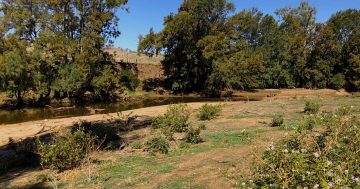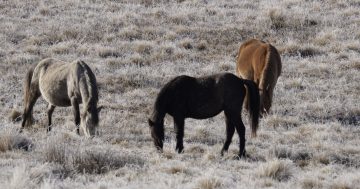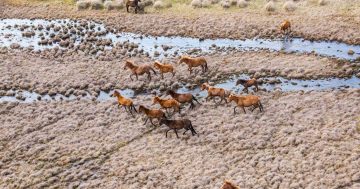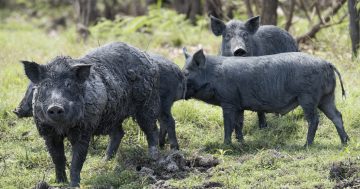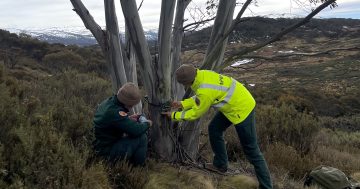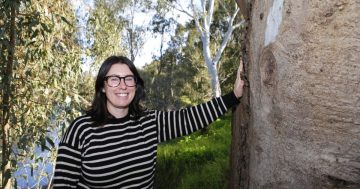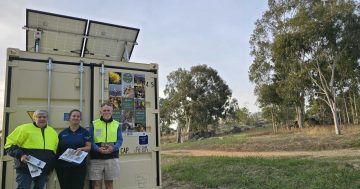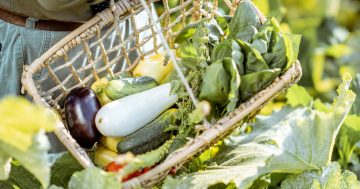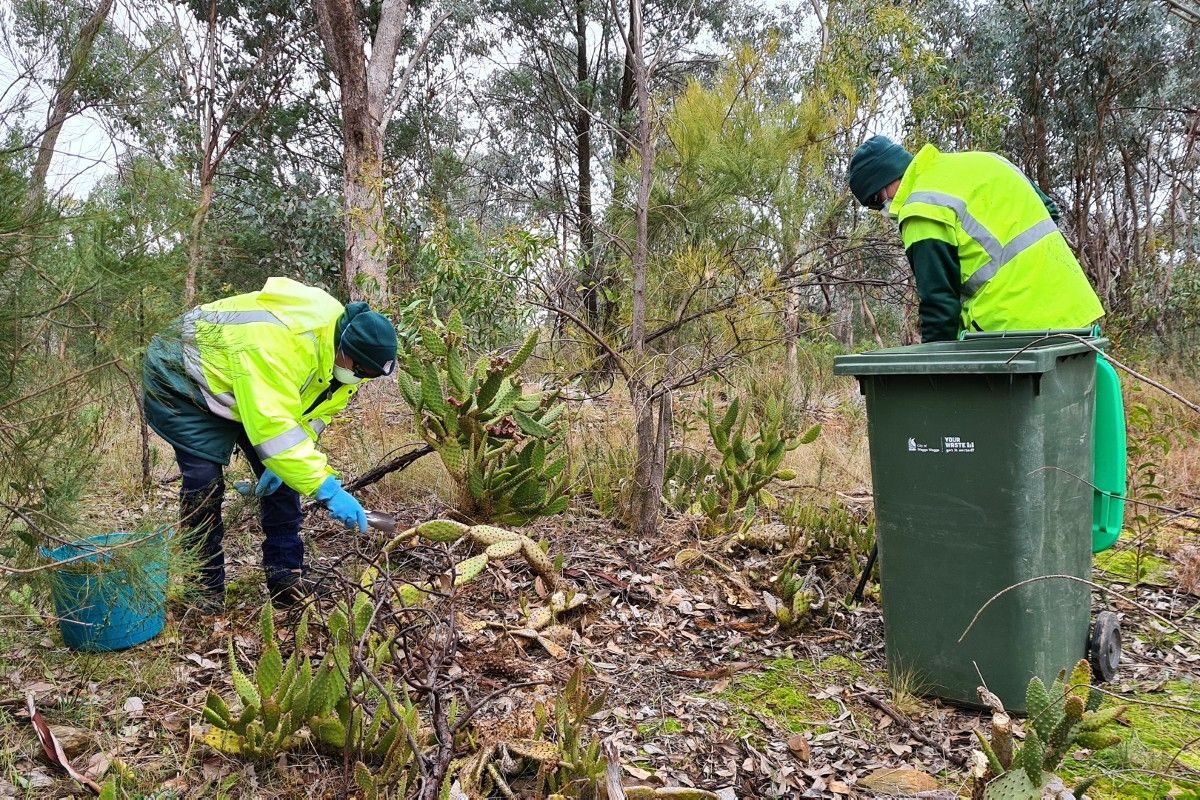
Council vegetation management officers carefully remove a patch of blind cactus in the Willans Hill Reserve. Photo: Wagga City Council.
Things are looking prickly up on Willans Hill with the discovery of a patch of Blind Cacti in the scrub.
Tony Phelps from Wagga Council’s Environmental Management Team said it’s a hazardous and invasive weed.
“It can have a big environmental impact if it gets established in natural areas, as it forms dense thickets and out-competes native plants, reducing habitat for native species” Mr Phelps explained.
“It also competes with pasture plants reducing productivity and can restrict recreational activities such as bushwalking and camping.”
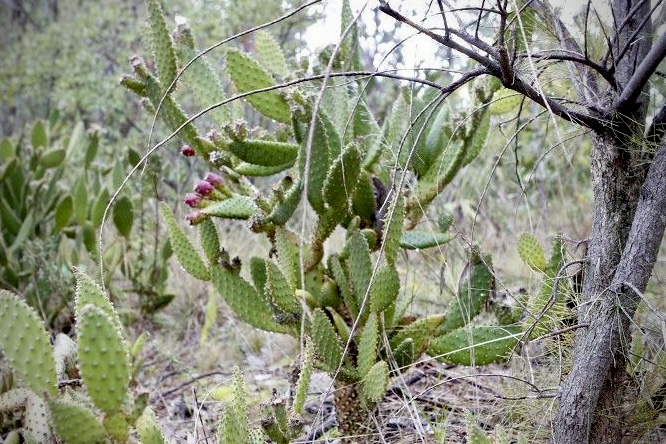
The Blind Cactus is a highly invasive species and can be dangerous to humans and animals. Photo: Wagga City Council.
Opuntia Rufina is a species of spineless prickly pear cactus, also known as cow blinders or bunny ears, and is native to southern Texas and Northern Mexico.
Rather than spines, the blind cactus has “glochids” which are short tufts of barbed prickles.
The reddish-brown glochids can become airborne and cause blisters and burning, along with irritation to your eyes.
In the US, it has been known to blind animals, hence the name.
It was introduced into Australia as an ornamental plant and is now classified as a state priority weed that Mr Phelps said must not be sold or bought anywhere in NSW.
“They [people] may not be aware that it should not be grown or how invasive it can be if it takes hold outside in public spaces,” Mr Phelps said.
An identification guide to Priority Weeds of the Murray and Riverina Region lists around 100 different problematic species in our region from African Boxthorn through to Yellow Waterlilly.
Weeds Australia is full of practical advice to help control the spread.
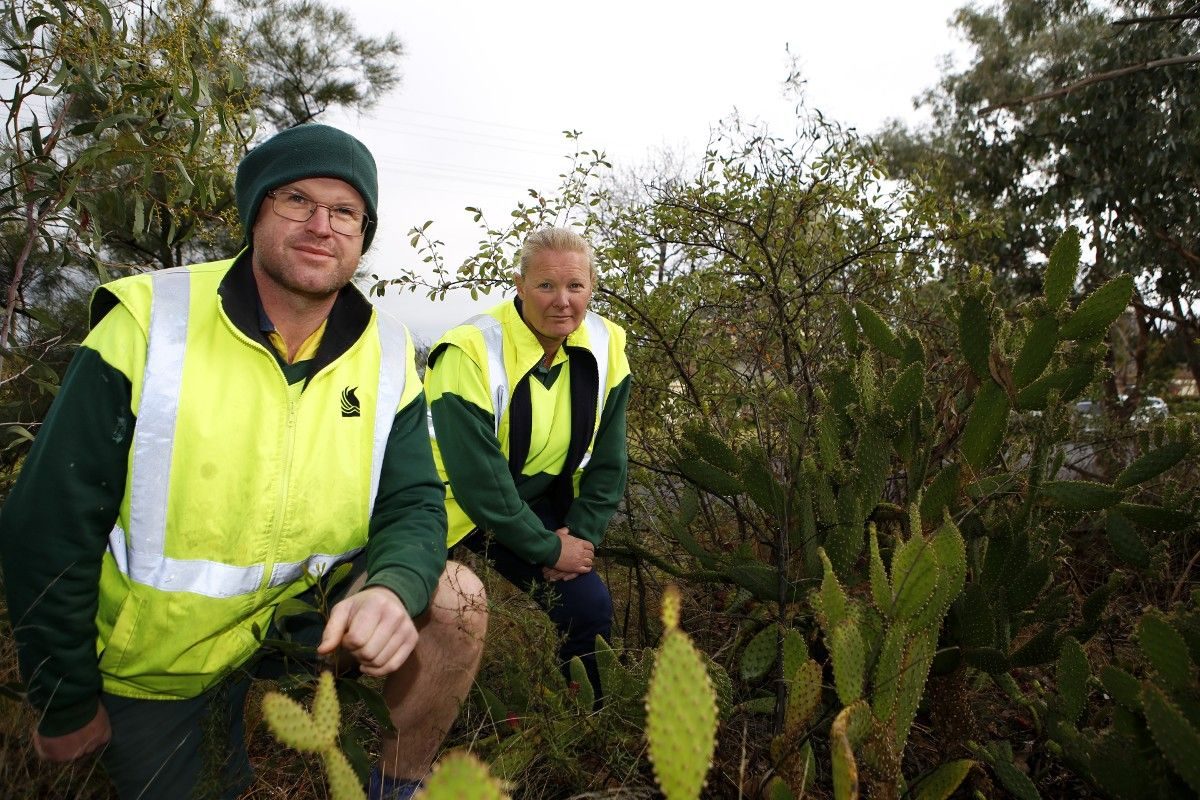
Vegetation management officers Chris Holman and Sharni Hands are working to remove the Blind Cacti from Willans Hill Reserve. Photo: Wagga City Council.
Simple things like sticking to designated tracks when passing through natural areas, keeping animals under control and covering trailers when transporting plant material can help.
It’s also important to know what you are planting in your garden and to properly dispose of garden waste.
“New plants can grow from parts of the stem or fruit when they come into contact with the soil,” Mr Phelps said.
“So it can easily spread if carried into an area on the coat of a domestic animal, or through people dumping their garden waste or clippings in reserves or bushland.”
With the discovery of Blind Cacti on Willans Hill, the council is encouraging Wagga residents who see any sign of the distinctive plant to report it as soon as possible.
In the meantime, the council’s vegetation management officers are working on removing the patch.
You can lodge a report on the council’s website or call 1300 292 442.







